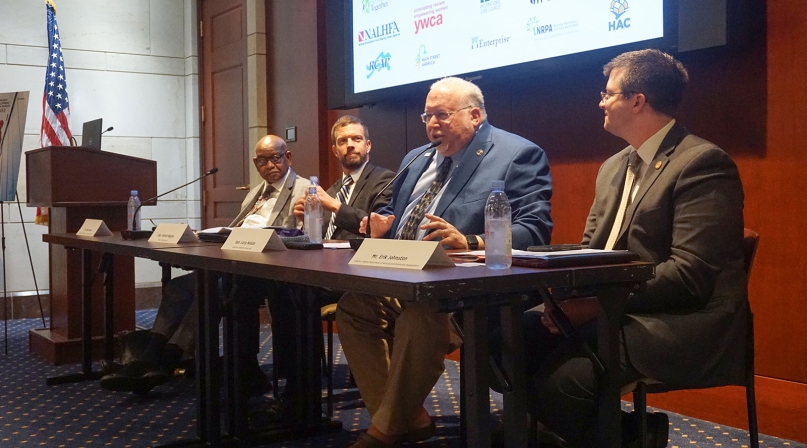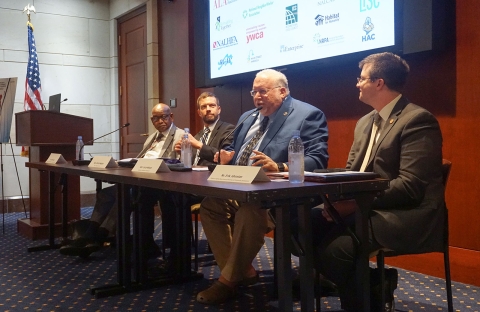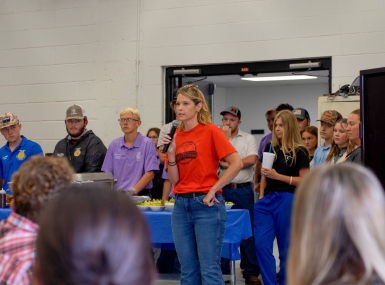County supervisor tells Congress about the importance of the Community Development Block Grant program
Upcoming Events
Related News

Key Takeaways
On July 23, the Community Development Block Grant (CDBG) Coalition hosted a congressional briefing to unveil a new national report on the CDBG program and urge congressional support for the block grant. The report, which can be found at this link, focuses on CDBG’s positive impact on communities and the need for continued federal funding.
The briefing featured state and local officials, including Waukesha County, Wis. Supervisor Larry Nelson, who chairs NACo’s Housing Subcommittee under the Community, Economic and Workforce Development Steering Committee. In his remarks, Supervisor Nelson discussed the importance of CDBG to his county in providing housing and economic development opportunities for low- and moderate-income families. Supervisor Nelson emphasized the importance of these federal investments to leverage private and non-profit sector funding. Toward that goal, Waukesha County has partnered with non-profit organizations to build new affordable homes and purchase a former fire station to serve as a permanent homeless shelter for families. The fire station shelter also operates co-located services with local non-profit service providers.
As Congress considers FY 2020 spending amounts, Supervisor Nelson and other briefing participants urged Congress to fully fund the CDBG program at $3.8 billion for FY 2020. For FY 2019, 1,268 state and local governments received a direct CDBG allocation. Currently, CDBG is funded at $3.3 billion under FY 2019 appropriations, consistent with FY 2018 funding levels.
Established in 1974, CDBG is a federal grant program administered by the U.S. Department of Housing and Urban Development (HUD) that provides annual grants on a formula basis to more than 1,200 metropolitan city and county governments, as well as state governments, to support housing, economic opportunities and infrastructure improvements for low- and moderate-income residents. This includes efforts to address affordable housing, improve water infrastructure and to meet human service needs. CDBG provides flexibility to states and localities to tailor the program to meet local conditions and needs.
For additional resources on the CDBG program, please see the following links:
- Community Development Block Grant (CDBG) Coalition 2019 National Report
- NACo 2019 Policy Brief: Support Local Development and Infrastructure Projects: The Community Development Block Grant (CDBG) Program
- NACo Action Alert: Urge your Members of Congress to support CDBG, HOME and EDA in the FY 2020 appropriations process

Attachments
Related News

Inland port offers opportunity for Hertford County, N.C.
Hertford County, N.C. doesn’t have a lighthouse, but that hasn’t stopped its economic future from shining thanks to what became known as Project Green Lantern.

Chamber of commerce program helps keep workers on the job
Audrain County, Mo.'s Workforce Resource Assistance Program has helped employers keep staff in place, reducing turnover and promoting stability.

County leadership guides shared prosperity
There’s no chicken-or-egg debate: Economic mobility is not just a byproduct of growth — it is the result of intentional county governance.